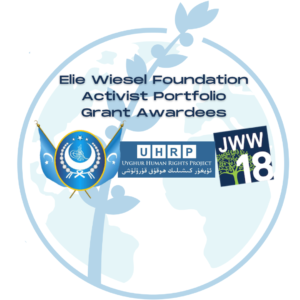I met Ingrid in person in April, 2007 when she came to California for her admissions interview at Stanford University. At the time, Ingrid was 19 years old. But I had actually seen Ingrid a few years before…when as a young teenager she was prominently featured in a documentary film (brilliantly produced by Global Nomads) about the Rwandan genocide. In the film, Ingrid told the story of the day her mother, Jeanne Niyimurora, father, Mbonigaba Charles, and brother, Inama Ireni, were murdered by a Hutu neighbor. Ingrid was only 6 or 7 at the time, but her personal story and her description of the Rwandan genocide wrenched my heart and seared my soul. I had no idea at the time that I saw the documentary that only a few years later, Ingrid would participate in our family’s Passover seder; and, I certainly had no idea that I would ever be in a position to place a bouquet of lilies (Ingrid’s mom’s favorite flower) at a mass grave site in Kigali in which lie Ingrid’s mother’s remains. Today I was blessed with the opportunity to do just that.
We entered the Rwandan genocide memorial museum today with the primary purpose of paying tribute to the victims –to dignify and sanctify the memories of the more than 1 million Rwandan Tutsis who fell prey to senseless hate and division. We also went to the memorial museum to try to understand why and how this genocide happened. The museum was incredible in every respect. Testimonials from witnesses, survivors, perpetrators and relatives were presented with sensitivity and brilliance. Historical and political overview and analyses were clearly articulated and thoughtfully presented. The theory and practice of propaganda campaigns were revealed, and all of the other genocides of the 20th century were thoroughly presented, analyzed and memorialized. It was truly a superb museum, as evocative as the United States Holocaust Museum, if only on a somewhat more modest scale.
We spent hours at the museum, and hours afterwards processing our experience with our Rwandan guides and friends. We tried to understand how bad people can manufacture hate and turn otherwise God-fearing and law-abiding citizens into mass murderers. We tried to wrap our arms around the notions of reconciliation and forgiveness. We compared and contrasted the Holocaust with the Rwandan genocide, theorizing at length about the different religious, emotional, social and political grieving experiences of Jewish and Tutsi genocide survivors. At the end of the day, I am left feeling (once again—as I did in connection with Darfur) a tremendous sense of love, compassion, intimacy and grief for a people whom I might otherwise conclude were vastly different from me.
 As I placed the flowers at the mass grave site today, I cried for Ingrid, for her mother, her father, her brother, her cousins, her aunts and uncles. I cried for the people of Rwanda–the victims, the survivors; I even cried for the perpetrators. As we huddled together to honor Ingrid’s family, we tried to find a blessing in the midst of the bones and blood and ashes on which we were standing. It was very difficult. But, in the end, we felt that we were blessed to be here representing the Jewish community and to give honor to the victims of this genocide. We felt blessed to be able to honor the memory of Ingrid’s family. We felt blessed to have Jewish World Watch through which we can help build the anti-genocide movement that will move the world towards finding genocide intolerable. We also felt it was a blessing to have the people of Rwanda confront their crimes and engage in the painstaking and seemingly impossible task of reconciliation and forgiveness. And, we also knew that above all, Ingrid is the ultimate blessing who brings meaning, brilliance and immortality to the lives of her mother and father. To Ingrid and to the thousands of other of beautiful children who were orphaned during this genocide, your lives are blessed and your parents’ legacy is surely guaranteed—through you.
As I placed the flowers at the mass grave site today, I cried for Ingrid, for her mother, her father, her brother, her cousins, her aunts and uncles. I cried for the people of Rwanda–the victims, the survivors; I even cried for the perpetrators. As we huddled together to honor Ingrid’s family, we tried to find a blessing in the midst of the bones and blood and ashes on which we were standing. It was very difficult. But, in the end, we felt that we were blessed to be here representing the Jewish community and to give honor to the victims of this genocide. We felt blessed to be able to honor the memory of Ingrid’s family. We felt blessed to have Jewish World Watch through which we can help build the anti-genocide movement that will move the world towards finding genocide intolerable. We also felt it was a blessing to have the people of Rwanda confront their crimes and engage in the painstaking and seemingly impossible task of reconciliation and forgiveness. And, we also knew that above all, Ingrid is the ultimate blessing who brings meaning, brilliance and immortality to the lives of her mother and father. To Ingrid and to the thousands of other of beautiful children who were orphaned during this genocide, your lives are blessed and your parents’ legacy is surely guaranteed—through you.
Tomorrow we cross in to Congo and will surely meet families who have been devastated by the ongoing atrocities there. We will be exploring ways for Jewish World Watch to not only lay a wreath but to help ameliorate the suffering of Congolese survivors.


